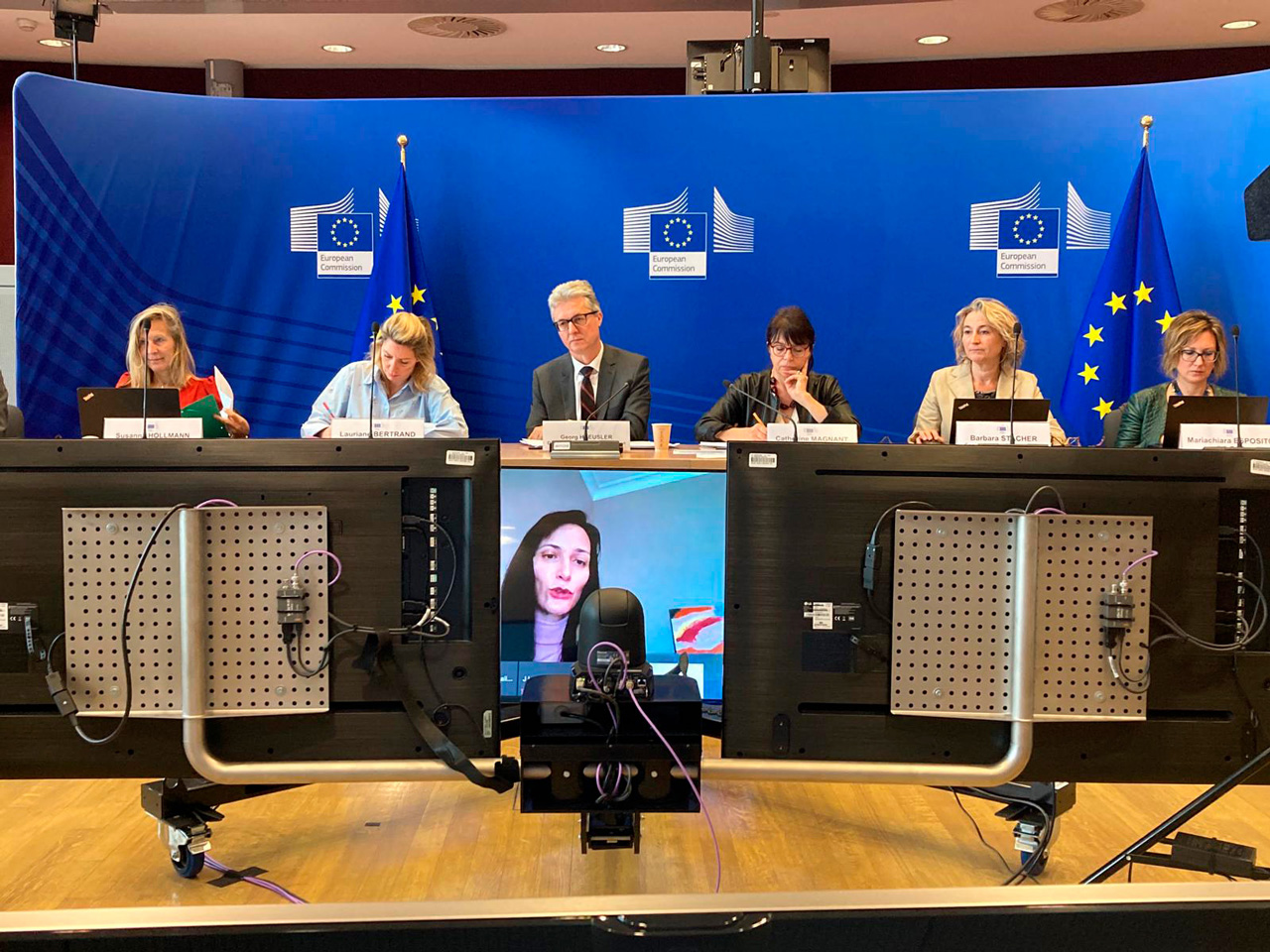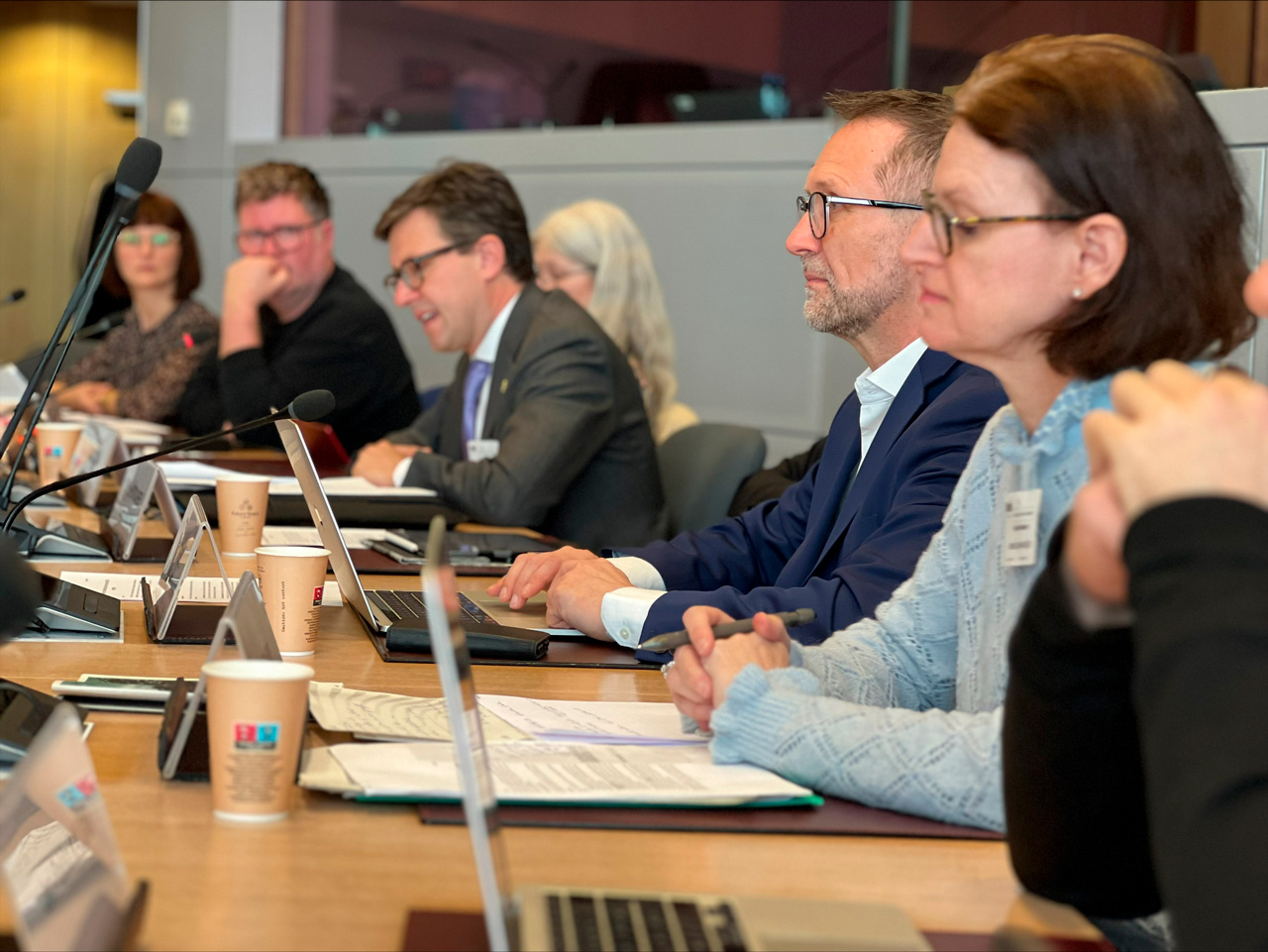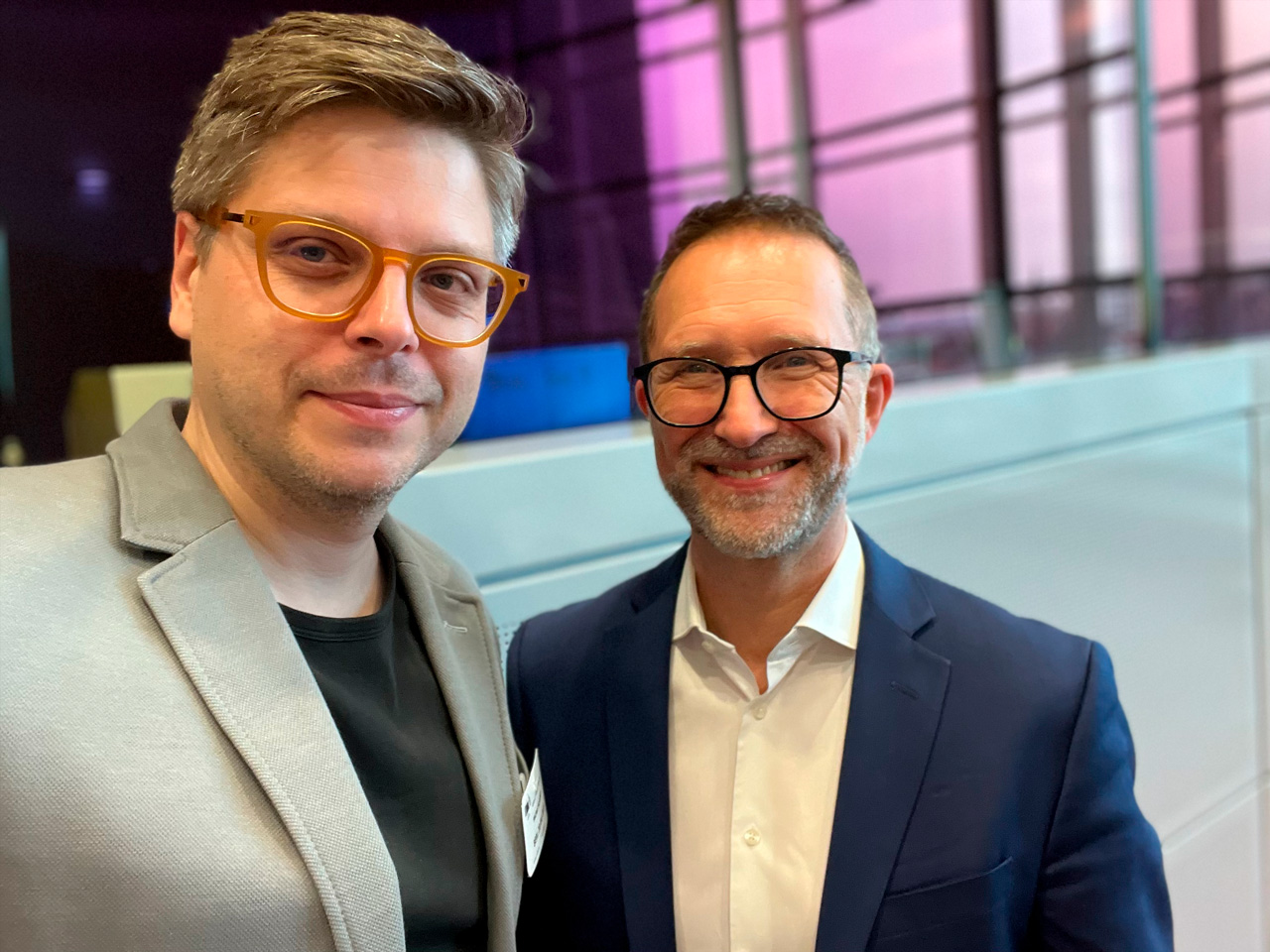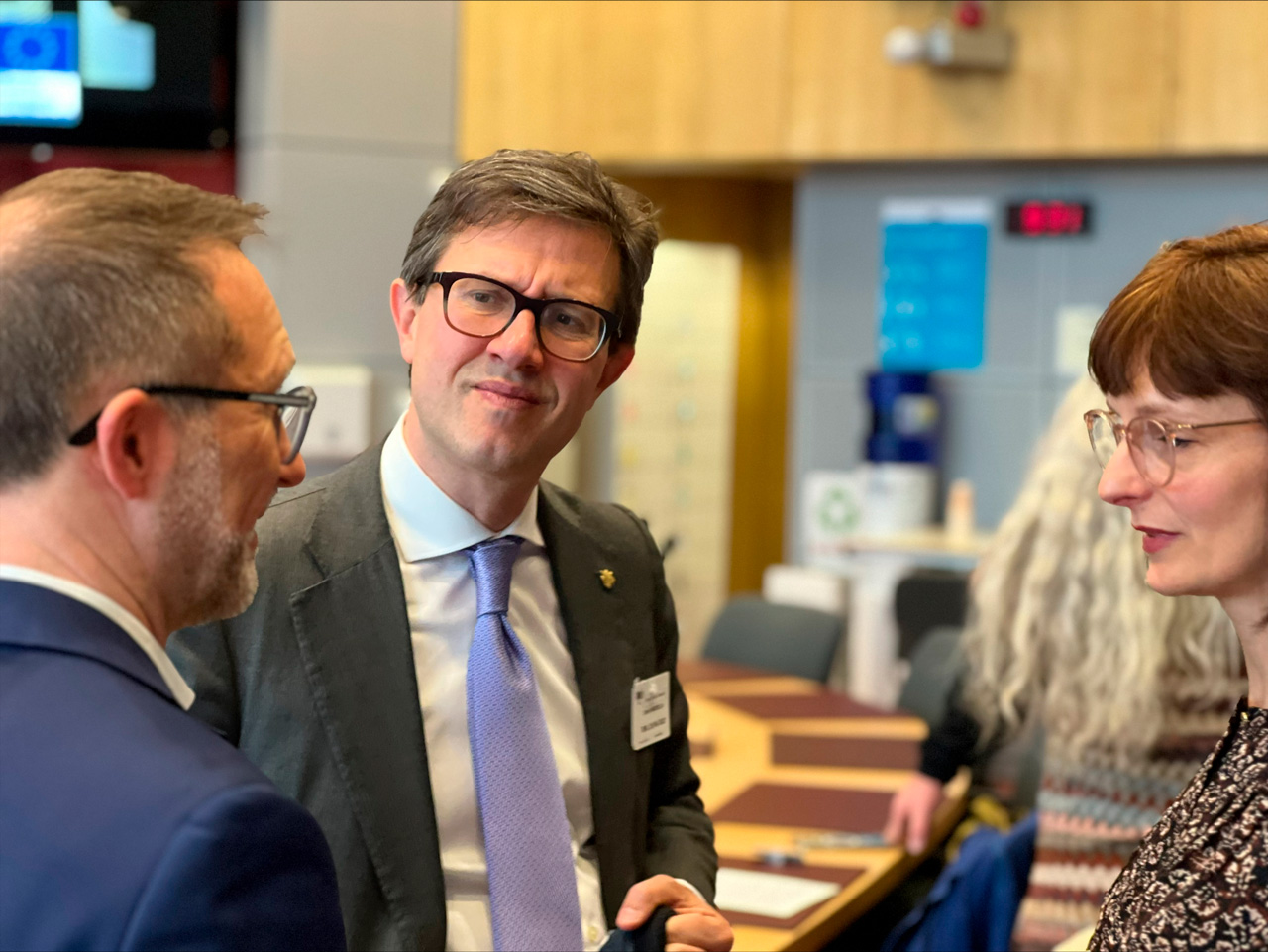On Thursday 20 April, Commissioner for Innovation, Research, Culture, Education and Youth Mariya Gabriel presented the second of three roundtables with selected high-level representatives of the Cultural and Creative Sectors and Industries in Europe.
The second meeting of the high-level round table on Cultural and Creative Industries took place on 20 April, following the successful launch of the first roundtable in February. The aim of these roundtables is to strengthen the ecosystem of Cultural and Creative Sectors and Industries, and to enhance direct communication channels between the commissioner and stakeholders of the sector. The roundtable was held in the European Commission’s premises and focused on identifying the challenges, opportunities, and needs of the sector.


EIT Culture & Creativity, supported by the European Institute of Innovation and Technology (EIT), a body of the European Union, is in a privileged position to contribute fresh ideas and perspectives on how to maximise the potential of innovation ecosystems and combine different EU instruments to achieve a common future. Among the notable participants in attendance are Bernd Fesel, interim CEO of EIT Culture & Creativity, and Michal Hladky, Director of Creative Industry Košice, interim Director of EIT Culture & Creativity CLC East and ECBN Board member.
“The cultural and creative sectors are very important for our societies, as they are critical to a shared sense of European identity, culture and values. In economic terms, cultural and creative sectors and industries show above-average growth and job creation – and that in particular for young people.”
Commissioner Mariya Gabriel
“Amid multiple crises the potential of the Cultural and Creative Sectors and Industries are recognized in Europe as never before. We are honoured and we are challenged by the responsibilities ahead to support Europe’s culture, economy and society in becoming more green and resilient. Let us seize the opportunity! It’s our time now.”
Bernd Fesel, interim CEO EIT Culture & Creativity
“Culture and creativity have brought an entirely new strategic narrative for Košice since 2013. We can see the results of the culture-led transformation in the making. Round tables are evidence that the Commission wants to harness maximum potential across the sectors and countries as well as programs and tools it has to support the future of Europe by the value and innovation CCIS are bringing on stage.“
Michal Hladky, Director of Creative Industry Košice
During the meeting, participants shared the challenges they faced and proposed solutions that could be implemented. These included networking opportunities, nurturing the integration of small rural areas, and embracing a new strategic vision for a pan-European cultural policy framework. Common challenges were identified, calling for a sector-wide response to be addressed in the series of roundtables.


The European budget allocated to support the cultural and creative sectors is higher than ever before, with a reinforced budget for Creative Europe (€2.44 billion) and a newly launched Knowledge and Innovation Community for culture and creativity (with a budget of up to €400 million). There is also more than €10 billion targeting the Cultural and Creative Industries under the EU-funded National Recovery and Resilience Plans. The third meeting is scheduled to take place in June 2023, and it is hoped that the roundtables will continue to generate valuable insights and solutions for the sector.
List of organisations under the SUGA consortium are:
- Assen ASSENOV – Director of ONE Foundation Culture and Arts, organizer of the One Dance Week Festival
- Barbara BUDRICH – Head of Verlag Barbara Budrich
- Anita DEBAERE – Director of Pearle* Live Performance Europe
- José Luis DE VICENTE – Director of Barcelona’s Design Museum, DHUB
- Bernd FESEL – Interim Chief Executive Officer, EIT Culture & Creativity
- Héloïse FONTANEL – Head of European and International Public Affairs of the SACEM
- Michel HLADKY – Director of Creative Industry Košice
- Carina JAATINEN – Director of Museum of Finnish Architecture
- Jari-Pekka KALEVA – Director of European Games Developer Federation
- Scott LIPINSKI – CEO of Fashion Council Germany and European Fashion Alliance
- Dario NARDELLA – President of Eurocities
- Stéphane SEGRETO-AGUILAR – Head of International Development at ARTCENA and Circostrada coordinator

About EIT Culture & Creativity
EIT Culture & Creativity is the ninth Innovation Community by the European Institute of Innovation and Technology (EIT), a body of the European Union. It is designed to strengthen and transform Europe’s Cultural and Creative Sectors and Industries (CCSI) by connecting creatives and organisations to Europe’s largest innovation network. It takes a holistic and open approach to innovation – from tech to artistic driven innovations, from business to citizen driven – and reinforces the appreciation and anchoring of European values and identities. EIT Culture & Creativity will unlock latent value from a multitude of small CCSI stakeholders through technology transfer, improved cross-sectoral collaboration and their effective integration in production value networks. EIT Culture & Creativity will support technology and business innovation; artistic innovation and social innovation. It will also harness the unique position of the CCSI to facilitate the Triple Transitions in Europe – green, digital and social.
About Creative Industry Košice
Creative Industry Kosice (CIKE) was established as an NGO by the city of Košice to deliver the European capital of culture 2013 project. The main goal of CIKE is actively supporting the local Cultural and Creative Industries (CCI) ecosystem. CIKE utilises the creative potential of the sector for improving citizens well-being and quality of public services in the city of Kosice. The main activities of CIKE are educational, capacity building and professionalisation programmes for local and regional CCI actors, development of CCI strategic documents and action plans, facilitation and fostering of cross-sectoral cooperation among businesses, creatives, academia, and public sector, creation of international networking and cooperation opportunities for the local CCI players and showcasing and promotion of digital and new media art as tool for innovation and public good.
About The European Institute of Innovation and Technology (EIT)
The EIT is Europe’s largest innovation ecosystem bringing together close to 3,000 partners from top business, research and education organisations across Europe in over 80 innovation hubs. The EIT strengthens Europe’s ability to innovate by powering solutions to pressing global challenges and by nurturing entrepreneurial talent to create sustainable growth and skilled jobs in Europe. The EIT is an EU body and an integral part of Horizon Europe, the EU Framework Programme for Research and Innovation. The Institute supports dynamic pan-European partnerships, EIT Knowledge and Innovation Communities, composed of leading companies, research labs and universities each dedicated to solving a pressing global challenge, from climate change to health, to renewable energy.



